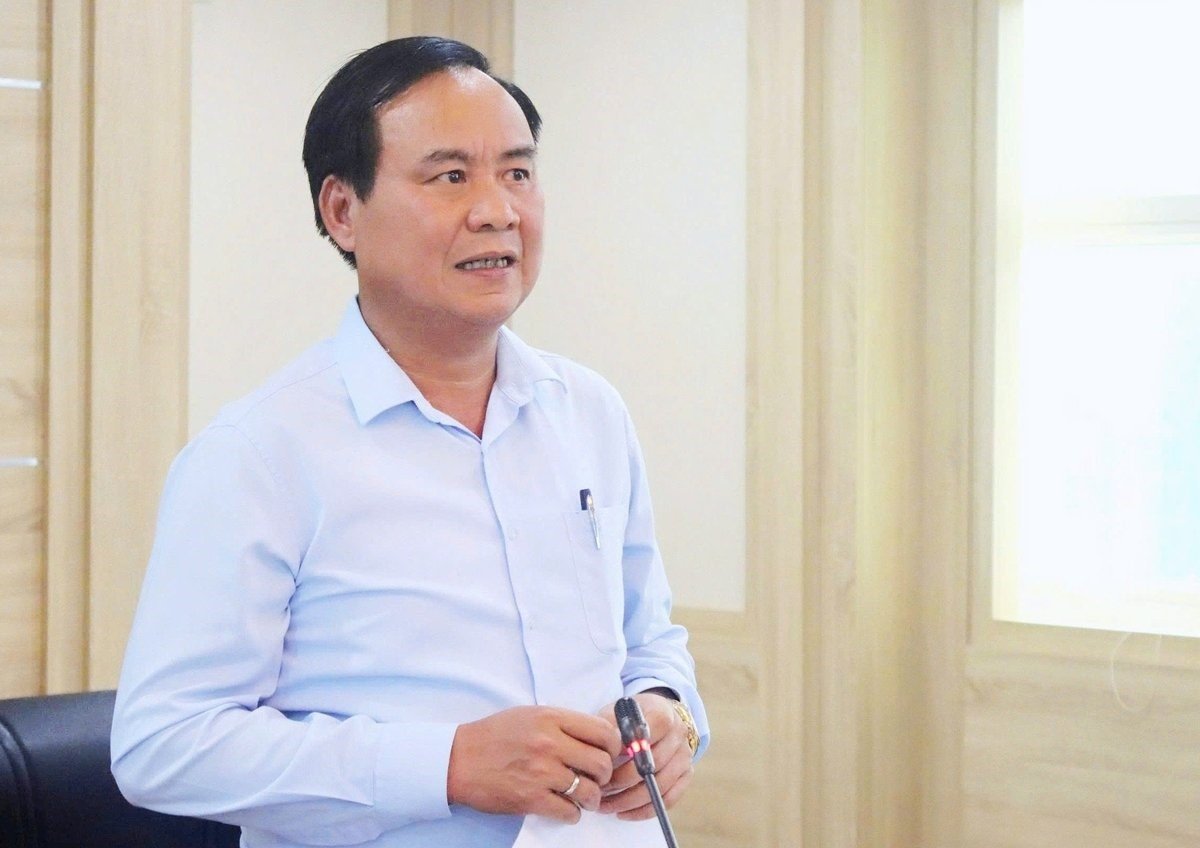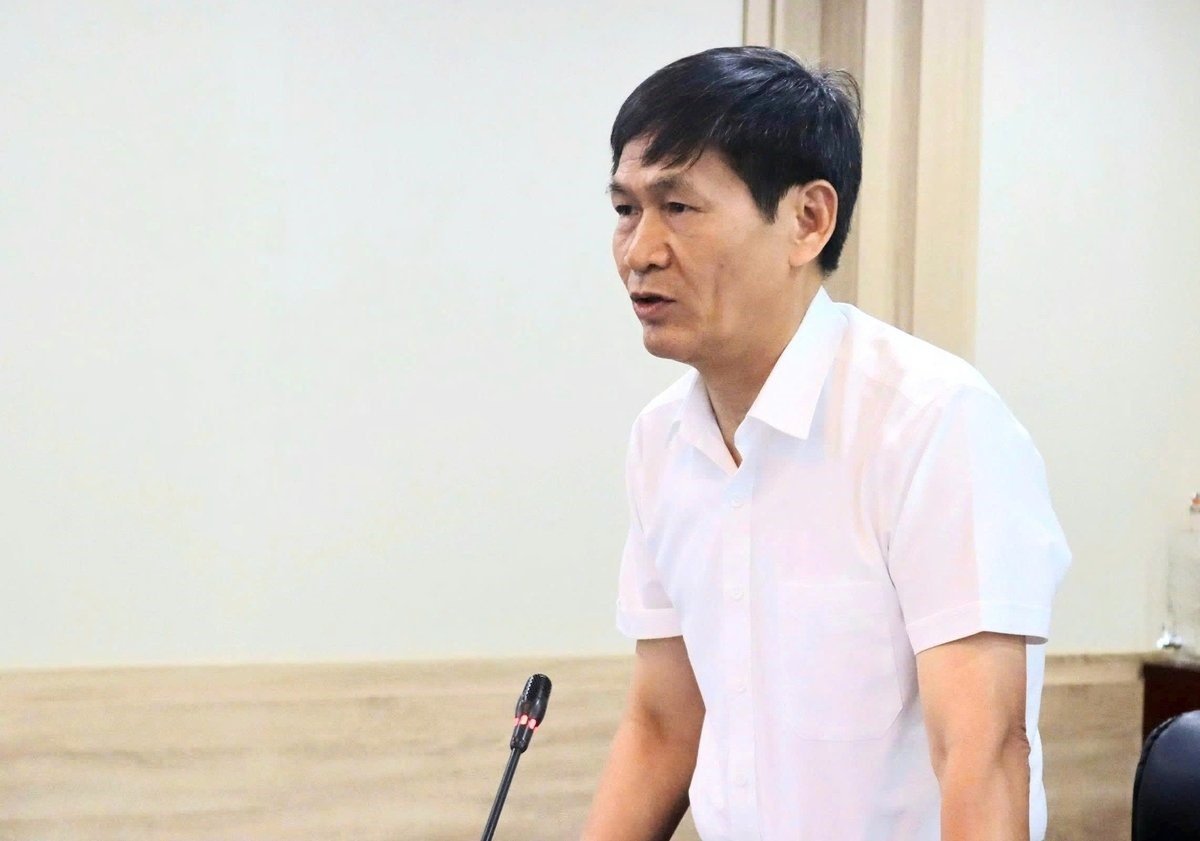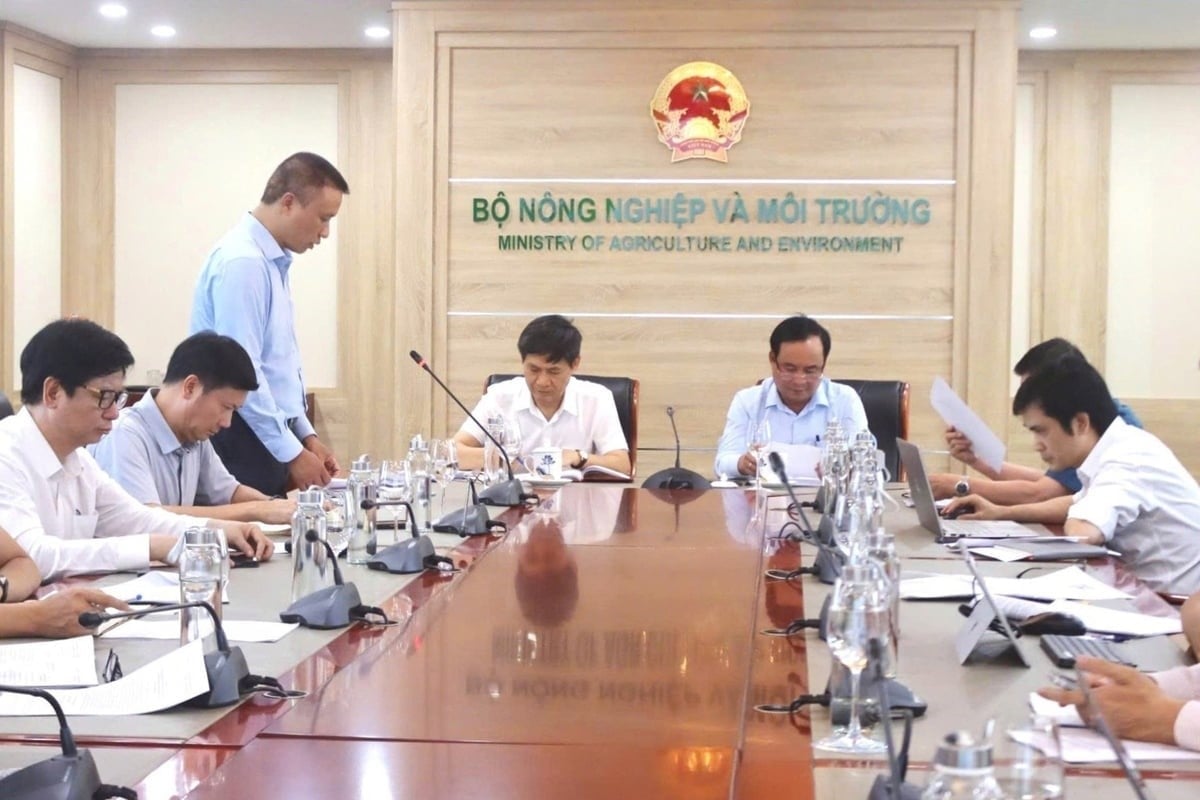October 27, 2025 | 14:14 GMT +7
October 27, 2025 | 14:14 GMT +7
Hotline: 0913.378.918
October 27, 2025 | 14:14 GMT +7
Hotline: 0913.378.918
On June 12, the Ministry of Agriculture and Environment held a conference to gather feedback on the draft Decree to replace Decree No. 57/2018/ND-CP regarding mechanisms and policies to encourage enterprises to invest in agriculture and rural areas. The conference took place amid a period of dynamic national transformation, requiring new mindsets, new institutions, and new innovations to remove barriers and promote capital flows into agriculture, an important yet risk-laden sector, particularly in remote areas.
In his opening speech, Deputy Minister of Agriculture and Environment Vo Van Hung frankly acknowledged that, after five years of implementation, many provisions under Decree 57 have revealed limitations. The procedures are cumbersome and inflexible; support resources are scattered and difficult to access for small and medium-sized enterprises. Several policies have yet to attract investment from the private sector, particularly in agricultural production infrastructure in remote areas.
“We must change our viewpoint and mindset. The old ways are no longer suitable in today’s markedly different socio-economic context. The issuance of a new Decree is not merely an amendment but a reshaping of the investment support mechanism for agriculture,” the Deputy Minister emphasized.

Deputy Minister of Agriculture and Environment Vo Van Hung speaks at the conference. Photo: Hoang Hien.
According to Deputy Minister Vo Van Hung, policies must shift toward promoting green development, a circular economy, and multi-value integration while incorporating cultural elements into agricultural products to enhance brands and competitiveness in both domestic and international markets. More importantly, support policies must be "substantive" to avoid the situation of existing on paper but remaining difficult to disburse or implement.
At the conference, many delegates from localities and enterprises highlighted obstacles to implementing Decree 57. A representative of the Hanoi Department of Agriculture and Environment recommended retaining existing mechanisms for land and water surface lease exemptions and reductions. The department also proposed expanding support to enterprises providing public services and investing in high-tech agriculture.
According to a delegate from Thua Thien–Hue province, current policies fail to adequately cover groups involved in the care, protection, and development of forests, a key component of sustainable agriculture. Meanwhile, the representative of Quang Tri province proposed revising the fixed 30% quota requiring the employment of ethnic minority laborers, as this rate is not always feasible in small-scale projects or in areas with limited minority labor resources.

Mr. Nguyen Van Doan, Deputy Director of the Department of Sectoral Finance and Economics under the Ministry of Finance, emphasized the need for continued coordination with relevant Ministries and branches to ensure consistency with the policy system. Photo: Hoang Hien.
Many delegates agreed that investment procedures should be streamlined, with shorter timelines for appraisal, approval, and disbursement, especially in the context of the two-tier government model set to take effect on July 1, 2025. Several support contents, including infrastructure investment, preferential credit, digital technology application, and the development of eco-friendly and low-carbon products, were also proposed for increased levels to ensure feasibility.
One of the core issues discussed at the conference was the need to target support policies toward key areas. Mr. Tran Manh Bao, Chairman of the Vietnam Seed Trade Association, stated that current tax policies do not accurately reflect the risks and long production cycles of the agricultural sector. “Tax policies should not be uniformly applied across sectors. Agriculture needs a preferential tax mechanism to encourage enterprises’ long-term investment,” he said.
According to Mr. Bao, investment in scientific and technological research must be considered the nucleus of modern agricultural development. Policies should prioritize seed development, deep processing technologies, and the establishment of large-scale raw material zones, all of which are indispensable foundations if Vietnam wishes to become an agricultural powerhouse.
Sharing the same view, Mr. Tran Cong Thang, Director General of the Institute of Strategy and Policy on Agriculture and Environment, emphasized the importance of clearly defining the scope, objects, and conditions of support to avoid situations where well-intentioned policies are inconsistently applied across regions. Notably, he recommended that policies facilitate the use of project assets as collateral for credit access.
Summarizing the contributions, Deputy Minister Vo Van Hung affirmed that the new draft Decree must meet the criteria of being clear, comprehensible, easy to implement, feasible, and easy to settle. An important content is the integration of resources from national investment programs to avoid overlap, along with enhanced decentralization to empower local governments in fund allocation and disbursement.

One of the core issues discussed at the conference was the need to target support policies toward key areas. Photo: Hoang Hien.
“Policy design must aim to open up a new investment environment, new institutions, and new innovations. We must create incentives for businesses to enter remote areas, support the purchase of agricultural products from farmers, and participate in long-term, sustainable value chains,” emphasized the Deputy Minister.
He also noted that the draft Decree will research the establishment of an Agricultural Development Fund for Green and Sustainable Development, aiming to effectively mobilize and coordinate investment resources for innovation, particularly in seedlings, high technology, and digital transformation applications.
Speaking at the conference, Mr. Nguyen Van Doan, Deputy Director of the Department of Sectoral Finance and Economics under the Ministry of Finance, stated that the Ministry had fully recorded feedback from localities, businesses, and industry associations. “We will seriously receive feedback, thoroughly review all provisions in the draft, particularly those related to support levels, beneficiaries, and the feasibility of implementation,” he affirmed.
He also underscored the need for continued coordination with relevant Ministries and branches to ensure consistency within the policy system, avoid overlaps, and create momentum for business investment in agriculture and rural areas.
In his closing speech, Deputy Minister Vo Van Hung expressed his appreciation for the contributions and affirmed that all feedback would be thoroughly and seriously considered in finalizing the draft Decree for submission to the government. “What matters most is ensuring these policies are applicable in real life and effectively address the challenges faced by businesses,” he affirmed.
With a renewed approach, clearly defined strategic priorities, and the removal of long-standing barriers, the new Decree is expected to open a new phase of development for Vietnamese agriculture, which is greener, more modern, and more sustainable.
Translated by Thu Huyen

(VAN) An Giang Province calls on the people to combat IUU fishing; violations may result in a VND 1 billion fine or imprisonment of 15 years.

(VAN) Sludge treatment has been a major challenge for Hanoi, which may seem minor at first glance but has a profound impact on sustainable development.
/2025/10/24/1814-3-091309_468.jpg)
(VAN) With an estimated value of around $10 trillion by 2028, Halal is becoming a promising new market for Vietnam's agricultural and food exports.

(VAN) The Ministry of Agriculture and Environment has issued Decision No. 4082/QD-BNNMT on the Ministry’s plan to implement the Prime Minister’s Decision No. 1422/QD-TTg dated November 19, 2024.

(VAN) The Prime Minister has requested the Ministry of Agriculture and Environment to coordinate with the Government Office in compiling weekly reports on the results of combating IUU fishing by ministries, sectors, and localities.
/2025/10/22/2133-3-181753_14.jpg)
(VAN) In Tan Thuy commune (Vinh Long), the 'party members mentoring fishermen' model has shown clear effectiveness, helping fishing vessels operate in compliance with regulations and eliminating violations in foreign waters.

(VAN) The Prime Minister has instructed ministries and agencies to tighten fishing-vessel oversight, increase patrols, digitize traceability systems, and concentrate all available resources on combating IUU fishing.